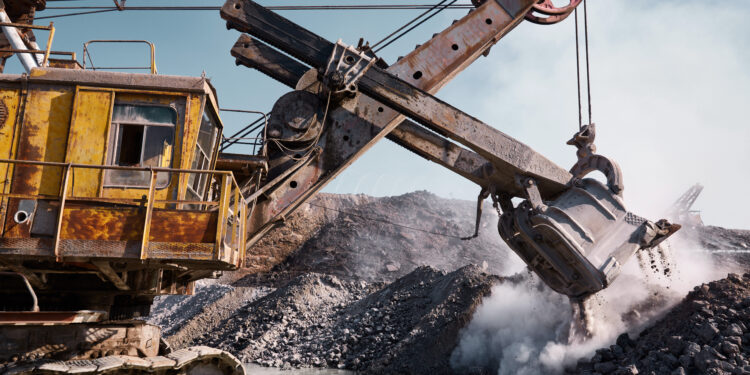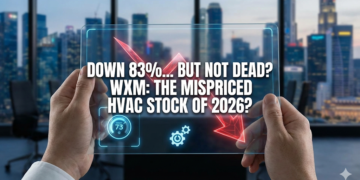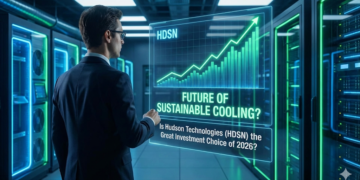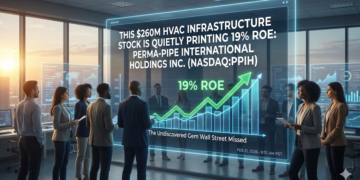TMC The Metals Company Inc. (NASDAQ:TMC) is a pioneering deep-sea minerals exploration and development company committed to supplying the world with critical metals essential for the clean energy transition. Headquartered in Vancouver, Canada, TMC is focused on harvesting polymetallic nodules from the ocean floor in the Clarion-Clipperton Zone (CCZ) of the Pacific Ocean, one of the richest known sources of battery-grade metals such as nickel, cobalt, copper, and manganese. These metals are vital components in electric vehicle batteries, renewable energy storage systems, and high-performance technologies that drive the global push toward decarbonization. Founded with the mission of creating a sustainable and scalable alternative to land-based mining, TMC is at the forefront of redefining how critical resources are sourced for a greener future.
The company holds exploration and collection rights through partnerships with Pacific island nations, including Nauru, Tonga, and Kiribati, granting it access to vast undersea territories containing billions of tons of polymetallic nodules. Each nodule contains a near-perfect blend of energy transition metals, making them a potential cornerstone of global electrification supply chains. Unlike traditional mining, which often leads to deforestation, displacement, and ecological degradation, TMC’s approach focuses on minimizing environmental impact by targeting seabed resources found unattached on the ocean floor. The company’s advanced deep-sea harvesting systems and environmental monitoring technologies are designed to ensure that resource collection aligns with stringent international sustainability standards.
TMC’s long-term vision is to create a fully integrated battery metals supply chain—from nodule collection and transport to onshore processing and refining. Through its strategic partnerships and engineering innovations, the company aims to become one of the lowest-cost and most environmentally responsible producers of key metals used in electric vehicles and renewable infrastructure. Its collaboration with Korea Zinc, one of the world’s leading metal refiners, underscores TMC’s commitment to building a sustainable and transparent value chain for critical minerals. Korea Zinc’s $85 million investment in TMC provides both financial backing and technical expertise to support the company’s plan to scale up its commercial operations in the coming years.
As global demand for clean energy materials continues to accelerate, TMC’s business model offers a compelling solution to the growing supply gap for nickel, cobalt, and copper. The International Energy Agency projects that demand for these metals will more than double by 2030, driven by rapid adoption of electric vehicles and renewable energy systems. TMC’s vast resource base positions it as a potential game-changer in meeting this demand while reducing geopolitical risks associated with traditional mining regions. By unlocking access to deep-sea resources, the company is not only helping secure the metals required for the world’s energy transition but also setting new benchmarks for responsible sourcing.
Led by a management team with extensive experience in resource development, engineering, and environmental science, TMC is pursuing a phased approach toward commercialization. The company’s NORI-D project, located in the eastern Clarion-Clipperton Zone, is expected to be among the first deep-sea nodule collection projects to achieve production readiness. TMC’s ongoing environmental baseline studies and pilot-scale tests have provided critical data to support its regulatory applications under the International Seabed Authority (ISA). Once production licenses are approved, TMC could become one of the first companies in history to commercially extract and process deep-sea polymetallic nodules on a meaningful scale.
Over the past year, TMC has emerged as one of the fastest-growing companies in the critical minerals sector. Its stock has surged more than 740% in 2025, reflecting growing investor confidence in its business model, strategic partnerships, and long-term role in supplying the metals essential to global electrification. Despite short-term volatility, the company’s fundamentals—anchored in technological innovation, resource security, and environmental responsibility—highlight its position as a future leader in sustainable metals production. With its mission to “build a metals company for the planet,” TMC continues to embody the intersection of profitability, innovation, and ecological stewardship at a time when the world urgently needs cleaner and more responsible resource solutions.
A Deep-Sea Giant Surging to New Highs Amid the Critical Minerals Boom
TMC The Metals Company Inc. (NASDAQ: TMC) has captured investor attention once again after its stock surged to a 52-week high of $8.66, marking an astonishing 744.06% gain over the past year. With a market capitalization now standing at approximately $3.46 billion, TMC has emerged as one of the most remarkable success stories in the mining and energy transition sector of 2025. The company’s meteoric rise highlights both the growing investor enthusiasm around deep-sea mining and the global demand for critical metals—nickel, cobalt, copper, and manganese—used in electric vehicles, renewable energy storage, and next-generation battery technologies.
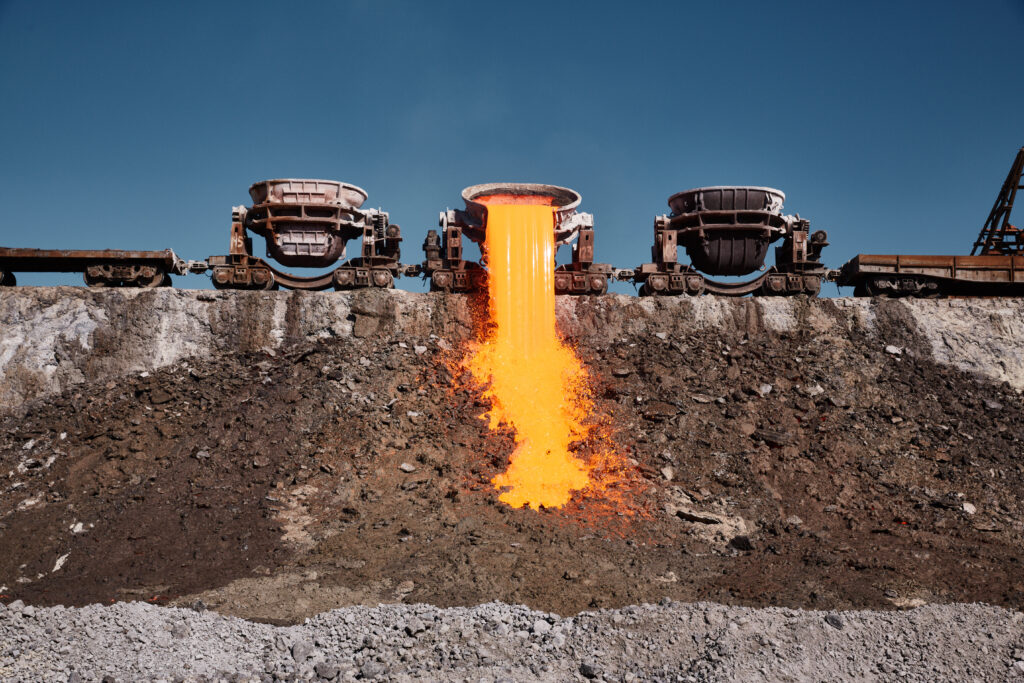
CHECK THIS OUT: Gyrodyne (GYRO) Lands $28.74M Deal for 49 Acres in St. James, NAV Jumps 6% and NioCorp (NB)’s $1.14B Elk Creek Project Set to Transform U.S. Critical Minerals Supply.
A Year of Explosive Growth and Market Confidence
The company’s stock performance in 2025 has been nothing short of extraordinary. Starting as a speculative micro-cap earlier in the year, TMC’s shares have skyrocketed amid renewed optimism about its ability to commercialize polymetallic nodule extraction from the ocean floor. These nodules, abundant in the Clarion-Clipperton Zone (CCZ) of the Pacific Ocean, contain the very metals that power the clean energy transition. As the world races toward decarbonization, the metals essential for electric vehicles, wind turbines, and grid-scale batteries have become strategic priorities—and TMC has positioned itself at the center of this new resource frontier.
According to InvestingPro data, TMC’s Relative Strength Index (RSI) currently signals an overbought condition, suggesting that the rally may have run ahead of fundamentals in the short term. Nonetheless, the company’s strong current ratio of 2.37 reflects solid liquidity and a healthy financial buffer to sustain operations. Investor sentiment remains overwhelmingly bullish, as TMC’s management continues to execute on its long-term strategy to build a vertically integrated deep-sea metals supply chain.
Strategic Vision: Mining the Future of Sustainability
TMC’s business model is centered on one of the most ambitious industrial ventures in modern history—commercial deep-sea mining. The company holds exploration contracts across more than 90,000 square kilometers of seabed in the Clarion-Clipperton Zone, granted through partnerships with the Pacific island nations of Nauru, Tonga, and Kiribati. These contracts provide access to billions of tons of polymetallic nodules, estimated to contain enough nickel, copper, cobalt, and manganese to support the production of hundreds of millions of electric vehicles.
What differentiates TMC from traditional miners is its commitment to environmental stewardship and technological innovation. The company is pioneering a deep-sea harvesting system that aims to minimize ecological impact while maximizing resource efficiency. In collaboration with partners such as Korea Zinc, which invested $85.2 million for a 5% equity stake, TMC is developing advanced onshore processing methods to refine nodules with reduced waste and lower carbon intensity compared to terrestrial mining. This partnership not only validates TMC’s technology but also aligns it with established global players in metals refining.
As the demand for critical minerals accelerates, TMC’s strategy is aligned with the global energy transition narrative—providing sustainable access to metals essential for electrification while reducing reliance on land-based mining, which often comes with geopolitical risk, deforestation, and high carbon footprints.
Financial Challenges and the Road Ahead
Despite its soaring valuation and technical milestones, TMC’s path has not been without turbulence. The company’s Q2 2025 earnings report revealed a net loss of $0.20 per share, far below analyst expectations of a $0.05 loss. The miss reflects ongoing capital expenditures, research costs, and pre-commercialization expenses tied to its deep-sea mining initiatives. While this widened loss might raise eyebrows, it is not unusual for a company at this stage of technological and operational development. TMC’s management has maintained a confident tone, reiterating its belief that upcoming milestones—including final regulatory clearance and large-scale nodule collection tests—will unlock substantial future value.
Moreover, with a current ratio above 2.3, TMC’s liquidity position remains healthy, suggesting it can continue funding research, environmental assessments, and pilot operations. Investors have largely looked past the near-term losses, focusing instead on the company’s multi-decade growth potential in supplying the metals essential to electrification and renewable infrastructure.
Industry Context: The Critical Minerals Supercycle
TMC’s rise also coincides with what analysts are calling the “critical minerals supercycle”, driven by record-high global demand for EV batteries and renewable energy systems. The International Energy Agency (IEA) estimates that global demand for nickel and cobalt will triple by 2030, while copper demand could double. This unprecedented need for metals has created a surge in investment across the entire extraction and processing value chain.
TMC’s deep-sea mining model is uniquely positioned to meet this demand. Unlike terrestrial mining operations, which face geopolitical instability and environmental opposition, TMC’s seabed resources exist in international waters governed by transparent regulatory frameworks. The company’s NORI-D project, expected to be one of the first deep-sea nodule production initiatives, could become a blueprint for sustainable mineral extraction. As global governments push for energy independence and ESG compliance, TMC’s ability to provide ethically sourced metals could prove to be a powerful competitive advantage.
Investor Sentiment: Between Hype and Hard Data
While some analysts argue that TMC’s valuation has run ahead of fundamentals, others see this as a re-rating justified by its strategic importance to the global energy transition. The company’s 744% year-over-year gain underscores the market’s recognition of its long-term potential. Still, InvestingPro’s analysis suggests that TMC’s current share price may reflect an overvaluation in the short term, given its pre-revenue status and ongoing R&D expenditures.
However, investors willing to look beyond immediate profitability may see TMC as a generational opportunity—a company sitting on vast, untapped resources that could reshape the future of clean energy supply chains. The risk-reward equation remains asymmetric: if TMC achieves successful commercialization and secures full-scale production approval, its valuation could expand dramatically as it transitions from speculative explorer to industrial metals producer.
A 52-Week High That Signals More Than Momentum
TMC’s recent surge to $8.66 per share is not just a technical milestone—it represents a broader shift in how investors view the future of sustainable mining and materials supply. The company’s combination of scientific innovation, strategic partnerships, and alignment with the clean energy megatrend has made it one of 2025’s most compelling growth stories.
Though volatility and skepticism persist, the long-term bullish case for TMC rests on its potential to become a cornerstone supplier of critical minerals for the electrified economy. If it continues executing its operational roadmap and overcomes regulatory hurdles, TMC could not only sustain its momentum but emerge as a defining force in the next industrial revolution—a revolution powered by cleaner energy, smarter materials, and a more sustainable approach to resource extraction.
READ ALSO: CEL-SCI (CVM) Stock Could Explode After Saudi Breakthrough Deal and Ondas Holdings (ONDS) Lands $2.7M Defense Order.

